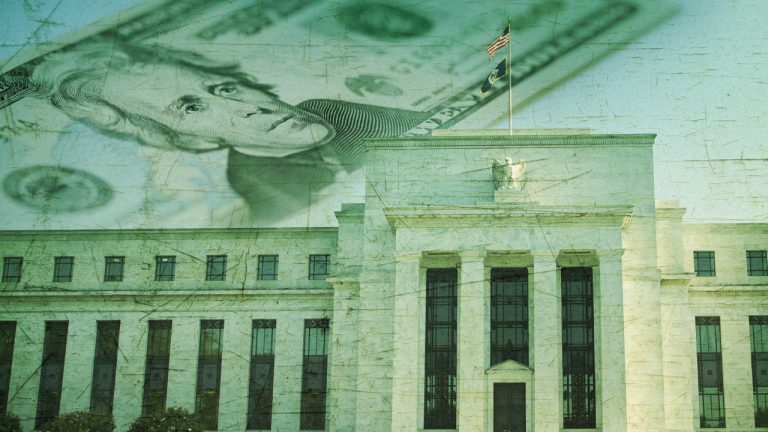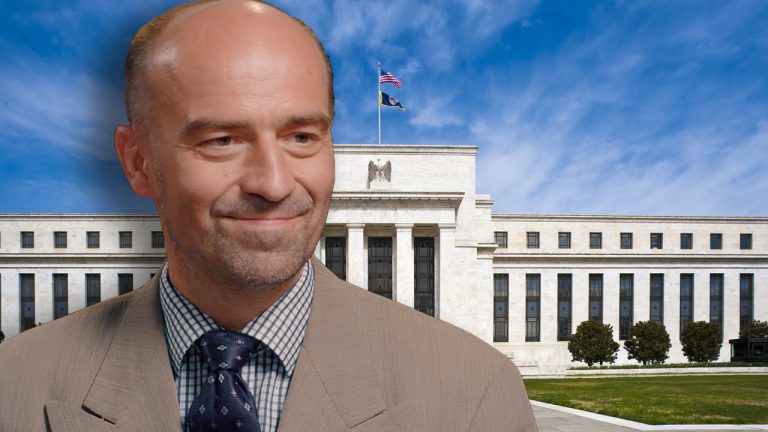
The two presidential hopefuls are of the opinion that FedNow is the first step in launching a CBDC that threatens privacy and autonomy.
Presidential hopefuls Robert F. Kennedy Jr. (RFK Jr.) and Ron DeSantis are rallying against the Federal Reserve’s FedNow payments system claiming it would pave the way for a Central Bank Digital Currency (CBDC).
In an April 11 Twitter thread, Democrat RFK Jr. — the nephew of former president John F. Kennedy Jr. — once again sounded the alarm bells over CBDCs describing them as the “ultimate mechanisms for social surveillance and control” as he questioned the Fed’s claims that FedNow won’t be used to facilitate a CBDC:
“The claim that FedNow is not the first step toward a CBDC would be more easily digestible were we not aware of the Biden administration’s steady barrage of hostile broadsides against cryptocurrencies.”
He added that cryptocurrencies like Bitcoin (BTC) "give the public an escape route from the splatter zone when this bubble invariably bursts" and claimed that Joe Biden's administration was "colluding with the banksters to keep us all trapped in the bubble of profiteering and control.”
The claim that FedNow is not the first step toward a CBDC would be more easily digestible were we not aware of the Biden administration’s steady barrage of hostile broadsides against cryptocurrencies.
— Robert F. Kennedy Jr (@RobertKennedyJr) April 10, 2023
Between 2008-22, the Fed partnered with a handful of big banks to print $10…
RFK Jr. filed his candidacy documents on April 5 and has been highly critical of CBCDs, stating last week that they “grease the slippery slope to financial slavery and political tyranny.”
FedNow is a 24/7 instant payments system that is slated to launch in July with the aim of speeding up transfers between financial institutions and businesses while also providing a government-backed alternative to similar networks provided by the private sector.
The Fed played down talk of the system potentially being integrated with a CBDC. On April 8 it addressed a series of frequently asked questions saying that “no decision” has been made to issue a CBDC and it “would not do so without clear support from Congress and the executive branch, ideally in the form of a specific authorizing law.”
In an April 11 tweet responding to the Fed's statement, Florida’s Republican Governor DeSantis stated that it is “not merely ‘ideal’ that major changes in policy receive specific authorization from Congress; it is constitutionally required."
It is not merely “ideal” that major changes in policy receive specific authorization from Congress; it is constitutionally required.
— Ron DeSantis (@GovRonDeSantis) April 10, 2023
Unaccountable institutions cannot impose a CBDC on Americans. They will tell us that CBDC won’t be abused but we are wise enough to know better.… https://t.co/OqJ27Lym2L
“Unaccountable institutions cannot impose a CBDC on Americans," DeSantis said. "They will tell us that [a] CBDC won’t be abused but we are wise enough to know better. This wolf comes as a wolf,” he added.
DeSantis is reportedly eyeing a presidential run himself and has also been pushing back against CBDCs. On March 20, he called for a ban on CBDCs in Florida citing concerns over their potential use for surveillance and control over citizens.
However, some remain unconvinced of these statements.
Related: CBDCs ‘threaten Americans’ core freedoms’ — Cato Institute
Speaking with NBC News on April 7, Aaron Klein, a former United States Treasury official and chief economist at the Senate Banking Committee, argued that the privacy-related concerns held by JFK Jr. and DeSantis are misplaced.
Klein noted that financial institutions are already required to report transaction data under current anti-money laundering and terrorism financing laws, and as such, a CBDC wouldn’t encroach on privacy any further.
“What [DeSantis] is getting wrong is this idea that there’s more reporting if there’s a central bank digital currency than if it’s a commercial bank digital currency,” he said.
Klein also spoke to AFP Fact Check on April 11 and emphasized that FedNow is purely focused on speeding up current Fed payment rails.
"There is no difference in privacy or surveillance whether you are using your Visa card or a CBDC," Klein said, adding that FedNow and CBDCs have “nothing to do with the other."
Magazine: Unstablecoins: Depegging, bank runs and other risks loom






